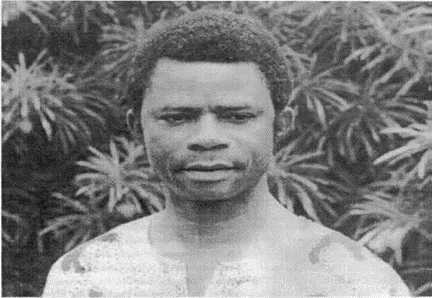John Okechukwu Munonye, a writer and educator, was one of the foremost Nigerian literary figures of the 20th century. His literary and educational endeavors were dedicated to harmonizing traditional Igbo values with the impact of Western Ideology.
Early Life
Born on April 28, 1929, in Akokwa, Imo State, Nigeria, John Munonye was the fourth child among seven in an Igbo family with a Roman Catholic upbringing. His father was a farmer. The juxtaposition of his traditional roots and religious beliefs greatly molded his views and influenced his writings.
Education
Munonye studied at Christ the King College, Onitsha, from 1943 to 1948. He then pursued higher education at the University of Ibadan, earning a B.A. in Classics and History in 1952. His thirst for knowledge led him to the Institute of Education at the University of London from 1952 to 1953, where he obtained a Certificate in Education.
Academic Career
Upon returning to Nigeria in 1954, Munonye served as an Education Officer until 1957, steadily ascending through the ranks to eventually become a Provincial Education Officer and Inspector of Education in 1958. By 1970, he had assumed the role of Principal at the Advanced Teachers College in Owerri, where he spent three years and delivered his final public lecture, titled “The Last To Go.” His dedication continued as he worked for the Nigerian Ministry of Education, serving as Chief Inspector of Education for the East Central State from 1973 to 1976, and subsequently holding the same position in Imo State for one year. In 1977, he transitioned away from administrative roles to focus more intently on his teaching and writing pursuits. Munonye also contributed as a Columnist for Catholic Life Magazine in Lagos and Nigerian Statesman in Owerri. He served as a Board of Directors Member for the East Central State Broadcasting Service in Enugu from 1974 to 1976.
Literary Works and Themes
Munonye’s literary journey began in 1966 with his debut novel, "The Only Son," which became the twenty-first entry in Heinemann's African Writers Series. This critically acclaimed work was followed by its sequels, "Obi" (1969) and "Oil Man of Obange" (1971). The trilogy explored the complexities of reconciling traditional expectations with a changing world, examining the impact of colonialism on family dynamics and culture. It also delved into the roles of women in Igbo society and the tensions between individual aspirations and communal obligations. These novels laid the groundwork for Munonye's subsequent works, all centered on themes of identity and societal transformation, particularly within Igbo society.
Munonye’s writing earned accolades for its realism and well-defined characters. Comparable to other 20th-century writers like Chinua Achebe, his work focused on the interplay between African traditions and European influences. However, unlike his contemporaries, Munonye often portrayed optimism in the face of colonial pressures on traditional values. He avoided vilifying colonial interference, as he believed little distinction existed between the manipulation of common individuals by elites and chiefs in pre- and post-colonial Nigeria.
Beyond his novels, Munonye authored numerous essays, plays, and short stories. His international literary representation was managed by David Higham Associates at 5-8 Lower John Street, London, W1R 4HA, England.
Bibliography
Novels
- The Only Son. London, Heinemann, 1966.
- Obi. London, Heinemann, 1969.
- Oil Man of Obange. London, Heinemann, 1971.
- A Wreath for Maidens. London, Heinemann, 1973.
- A Dancer of Fortune. London, Heinemann, 1974.
- Bridge to a Wedding. London, Heinemann, 1978.
- A Kind of Fool. Ibadan, Nigeria, Heinemann Educational, 1999.
Short Stories
- "Silent Child," in Okike 4 (Amherst, Massachusetts), December1973.
- "Pack Pack Pack," in Festac Anthology of Nigerian New Writing. Lagos, Ministry of Information, 1977.
- "Man of Wealth," in Catholic Life (Lagos), 1981.
- "On a Sunday Morning," in Catholic Life (Lagos), 1982.
- "Rogues," in Catholic Life (Lagos), 1985.
Others
- Drills and Practice in English Language (textbook), with J. Cairns. Lagos, African Universities Press, 1966.
Notable Quotes
“We may differ in the language we speak, yet we all remain children of the land.” - From “A Wreath for the Maidens.”
Death
John Munonye died in Owerri, Nigeria, on May 10, 1999, at the age of 70.


